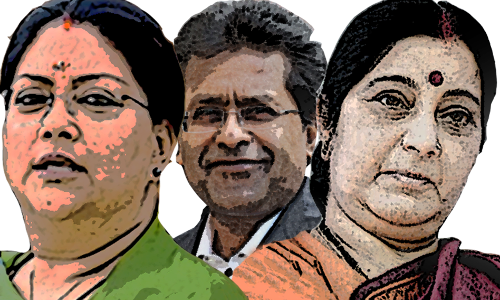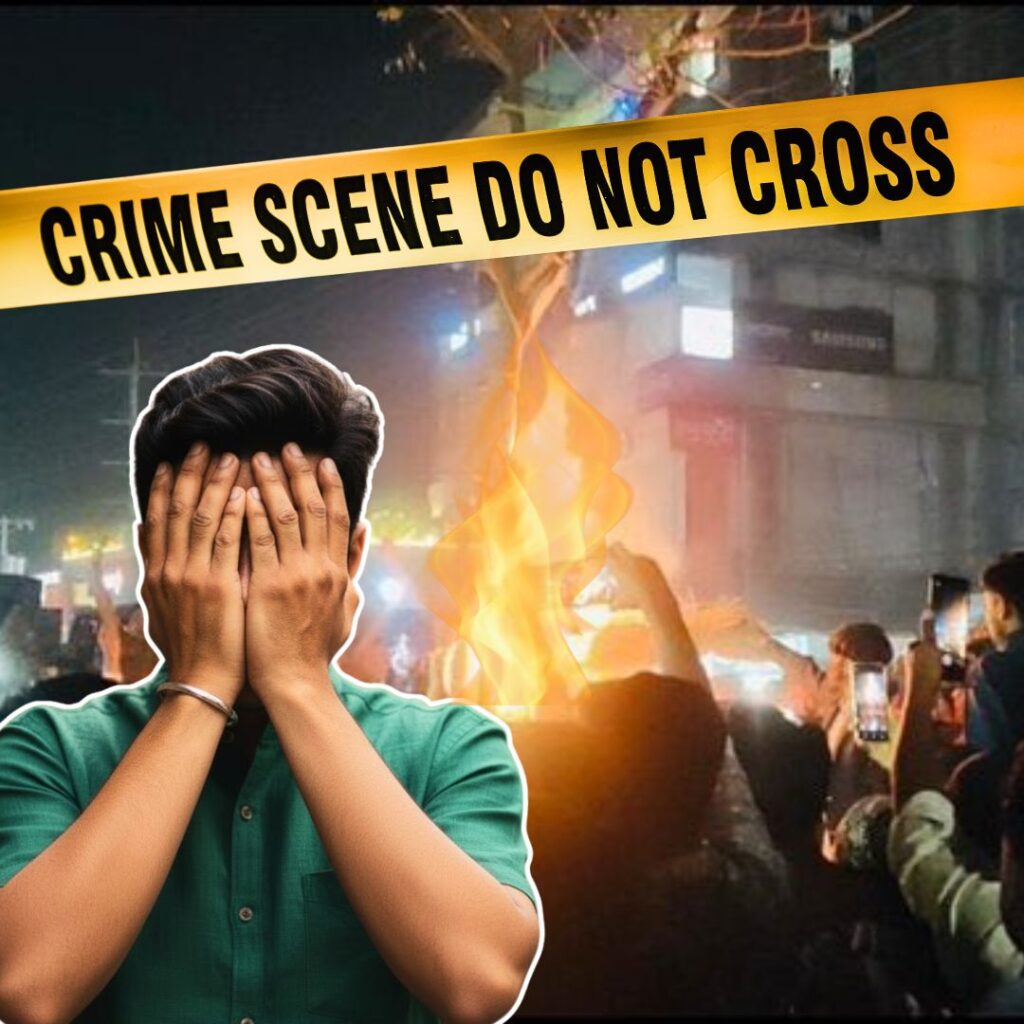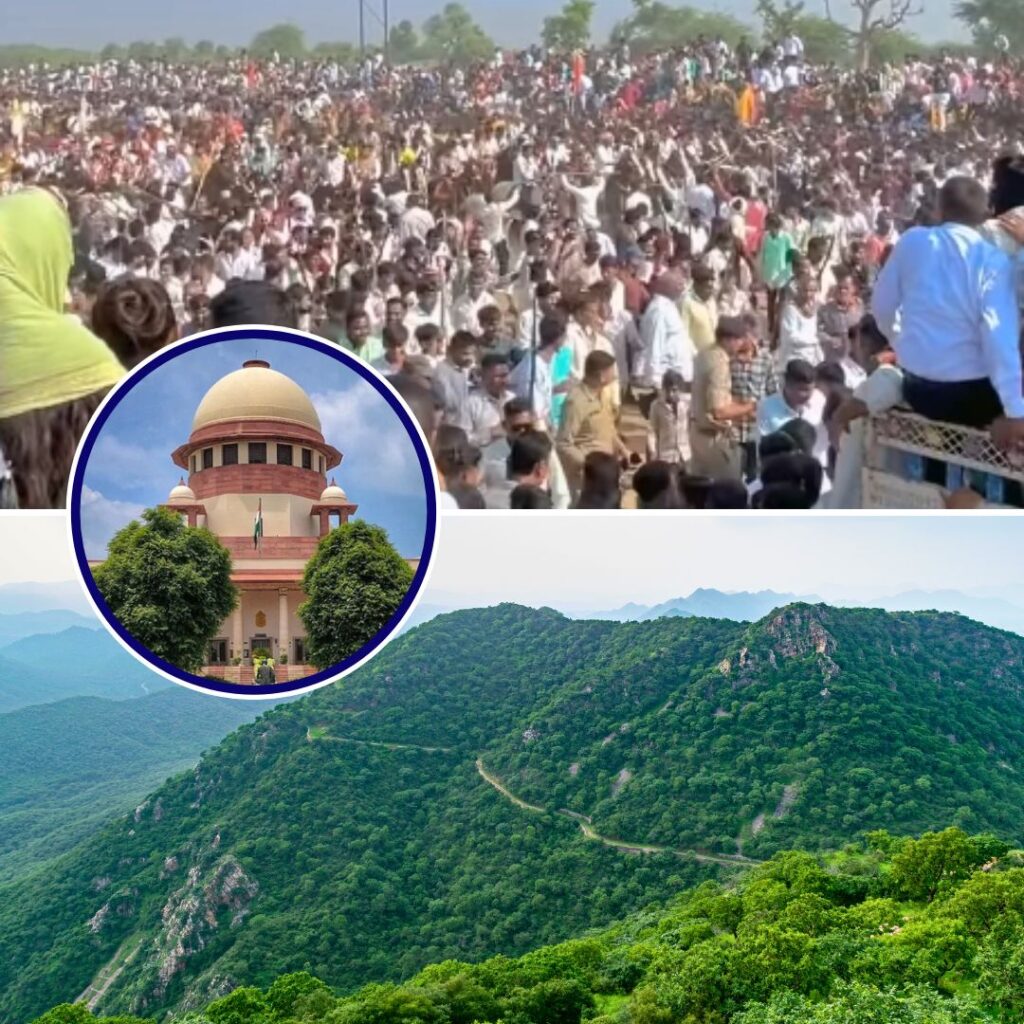The recent controversy involving the tainted IPL creator Lalit Modi, the Minister of External Affairs Sushma Swaraj and Chief Minister of Rajasthan Vasundhara Raje has grabbed national headlines for over a week. The recent inclusion of Vasundhara Raje into the mess has added fuel to the fire. Opposition parties are demanding Mrs Swaraj’s resignation, the government is on the defensive trying to protect her, and political pundits have numerous predictions on how this major story will end.
The Logical Indian presents a summary of the events that led to this political storm.
• British newspaper The Sunday Times reported an email conversation between Mrs Swaraj and Indian-origin UK MP Keith Vaz. The emails revealed that travel documents were facilitated for Lalit Modi so that he could travel to Portugal even though his passport was confiscated at the time.
• Swaraj argued that she had helped Modi on “humanitarian grounds” as his wife was undergoing a surgery in Portugal. Other party heads supported Swaraj, stating that what she did was out of patriotism and that it was harmless.
• The government was additionally hit by allegations of infighting when rumours were afloat that the person who released the emails was a government insider.
• The Opposition demanded Swaraj’s resignation, calling the event an “abuse of authority and violation of rules”.
• On Tuesday, it was revealed that Rajasthan CM Vasundhara Raje had provided Modi with a witness statement in 2011 to support his immigration application. This was done on the strict clause that “her name would not be revealed to Indian authorities”.
• Between 2008 and 2009, Mr Modi paid Rs. 96,000 per share in a company owned by Dushyant Singh, the Chief Minister’s son. But in his income tax returns for 2013, Mr Singh declared that his shares in the same firm were worth just Rs. 10 each. The huge premium paid by Mr Modi for those shares was in addition to an unsecured loan of nearly Rs. 11 crore to Mr Singh’s Niyant Heritage Hotels Private Limited.
• The fact that Swaraj and Raje have personal ties with Lalit Modi’s family increased media scrutiny on the matter.
These are the facts. At this point of time, it would be apt to pose two very important questions:
1) Why did the Minister of External Affairs agree to allow Lalit Modi to leave the UK even after knowing that he was a fugitive from the law and that his passport had been impounded?
2) This issue happened a few months after the government took office. Why was this issue kept secret for nearly a year – why was there no transparency in the Ministry’s activities?
The fact that Lalit Modi’s passport was invalidated by the previous government doesn’t come into the picture. Lalit Modi was a fugitive from the law; he was wanted by the Enforcement Directorate on charges of financial wrongdoing. He was, for all practical purposes, a criminal on the run. It doesn’t matter that his wife was undergoing a surgery – the law, they say, is blind, and in the eyes of the law Modi was a fugitive. The government was wrong in helping Modi.
What’s more is that the government kept this matter in the dark for so many months. A responsible government is a transparent one. The government should not indulge in any activity that does not have the consent of the people and the law.
Corruption is not limited to matters of money. Favouritism, abuse of government machinery, and exploiting conflict of interests – all of these are included as acts of corruption. And what Sushma Swaraj did by granting Lalit Modi free access to cross international borders without the knowledge of the Indian people – it plainly amounts to corruption.
This controversy again brings into light the lack of a legal framework to tackle the deep rooted malaise of “conflict of interest”, (CoI) which exists in almost every sphere of our existence — from government to sports, from judiciary to business, from media to research. It is high time, India needs strong conflict of interest laws. Many of our politicians and bureaucrats operate in situations of serious conflict of interest.
– Sudhanva Shetty












